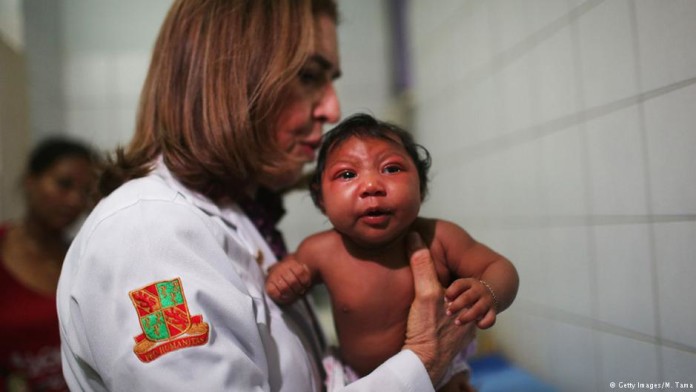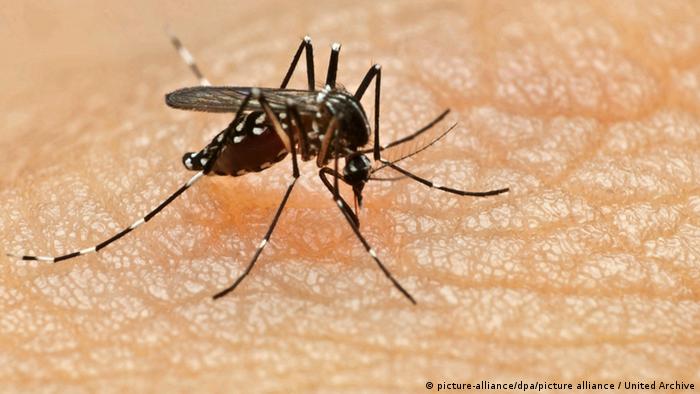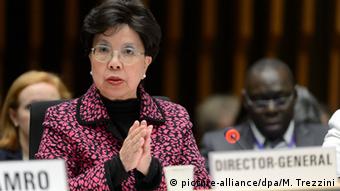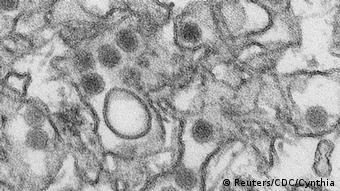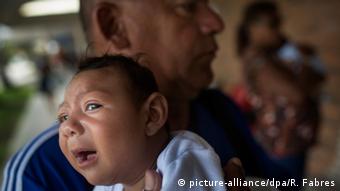* Public health experts, other stakeholders meet Wednesday in Abuja
As part of preventive measures against possible outbreak of Zika virus, the Federal Government says a meeting of stakeholders comprising experts in public health and other stakeholders would be convened on Wednesday in Abuja to examine the findings of their monitoring of the outbreak or otherwise of the disease to date.
In tandem, Dr. Margaret Chan, Director General of the World Health Organisation (WHO) is convening an International Health Regulations Emergency Committee meeting on Zika virus Monday in Geneva, Switzerland, to ascertain whether the virus outbreak from Latin American countries constitutes a public health emergency of global concern.
At the same time, German researchers say they have developed a diagnostic test kit that can accurately detect the Zika virus in humans. Previously, there was no way to diagnose the illness apart from appearance of its distinctive symptoms.
In Abuja, Prof Abdulsalam Nasiru, Director-General of the Nigerian Centre for Disease Control (NCDC), was quoted as saying that there is regular monitoring of the disease outbreak in place but that on Wednesday, public health experts and other stakeholders will meet in the Federal Capital to examine the findings to date.
At the weekend, Professor Isaac Adewole, Minister of Health issued a travel alert to pregnant women from Nigeria not to travel to Brazil and other Latin American countries.
Briefing the WHO Executive Board during its 138th session, Chan said the level of alarm is extremely high. The Director General noted that WHO is generally worried about the rapidly evolving situation and decisions are expected to be taken at the meeting to step up international efforts to fight the threat.
The Zika virus has been tied to severe birth defects, including babies born with brain damage to infected mothers. There is no vaccine that can prevent the infection and very few tests available to detect it. Worse still, people in most countries have never been exposed to the virus before, so there’s very little natural immunity to the virus in the general population.
The mosquito that carries the Zika virus, the Aedes aegypti mosquito, is the same mosquito that spreads the Chugwuniya fever and the yellow fever diseases, and is found in most parts of the world including Nigeria. A species of the same mosquito carries Dengue fever.
In recent times, public health officials around the world have expressed concern about the fast-spreading Zika virus.
Speaking on the Zika threat, Assistant Director-General of WHO, Dr. Bruce Aylward, said they project 3-4 million Zika infections in the Americas over the next 12 months.
In her contribution, Principal Deputy Director of the Centres for Diseases Control and Prevention (CDC), Dr. Anne Schuchat, noted that even though most people aren’t in any serious danger from Zika, the worrisome aspect to health officials is that “increasing lines of evidence suggest that some women infected with Zika during their pregnancies may go on to deliver a baby with a serious brain injury.”
Since October 2015, Brazil has seen more than 4,000 cases of microcephaly, a rare birth defect that stunts the growth of a baby’s brain and head. Many children with microcephaly have some degree of mental disability, and the condition is linked to a shorter lifespan.
In Germany, researchers say they have developed a diagnostic test kit that can accurately detect the Zika virus in humans.
Until now, the only way to determine if someone had the illness was to wait to see if the disease’s distinctive symptoms appeared.
The biotechnological company, Genekam, claims the technology cannot only reveal the presence of Zika pathogens in a blood sample, but also shed light on the quantity in the patient’s blood.
The new test is said to be able to determine if a person is a carrier of the Zika virus, and renders diagnostic results in real time.
According to a virologist and co-developer of the innovation, Sudhir Bhartia, the test examines DNA and works with chemicals that react to the Zika virus only.
The researcher also added that the test provides sufficient accuracy, as “similar pathogens like Dengue fever won’t show up in the results.”
The technology which is cost effective, however, has its limitations, as it can only be employed in specialized medical facilities and laboratories having the appropriate equipment and personnel with sufficient know-how.
Indications are that the first kits containing the new tests have already been sent to Brazil, where up to 1.5 million people may have been infected by the Zika virus.
Under normal circumstances, the test would go through a lengthy authorization phase. However, due to the emergency situation in South America, authorities have made an exception in this case.
Declare emergency over Zika outbreak – Brazilian official tells WHO
Amid the outbreak of the Zika virus in Brazil, a senior health official wants the WHO to declare a state of emergency. Researchers remain baffled by the virus and its possible link to a form of infant brain damage.
Mosquito vector
Ahead of the World Health Organization (WHO) meeting in Geneva today, Dr. Rodrigo Stabeli, Vice President of the Oswaldo Cruz Foundation (Fiocruz), Brazil’s foremost public health research organization, told DW the rapid spread of the disease across the Americas justified his call.
“As Margaret Chan (WHO president) said, we are seeing an ‘explosive’ rise in cases,” he said. “Looking at the transmission rates of this virus, I think Margaret should call a public health emergency.“
Such a move would help to free up funding from member states and private donors to help in the fight against the disease. At present, though the virus has been registered in 22 countries in the Americas, Brazil is bearing the brunt.
The country’s Health Ministry estimates that up to 1.5 million of its citizens may have been infected; 4,180 suspected cases of microcephaly, the infant brain damage which health authorities are linking to the Zika virus, have also been registered.
Lack of knowledge
But of all the worries current among Brazil’s scientific community in the wake of the outbreak, perhaps the greatest is ignorance.
Of those 4,180 suspected cases of microcephaly, only 270 have been confirmed, and only six of those have a proven link to the Zika virus.
“The problem is that we know so little about the disease,” said Dr. Denise Valle, an epidemiologist at the Oswaldo Cruz Institute, a major public health research center. “We need to understand this virus much better; at the moment it is still a mystery.”
First identified in a rhesus monkey in Uganda’s Zika forest in 1947, the virus only really began to cause concern in 2007 following the first notable outbreak among humans on Yap Island in Micronesia.
It was first recorded in Brazil in May 2015, and it was in November last year that the country’s health authorities alerted the Pan-American Health Organization (PAHO) about a possible link between Zika and microcephaly.
‘Compelling correlation’ with microcephaly
So far most of the evidence for the link is based on a strong correlation between the virus outbreak and the incidence of microcephaly. But Brazilian researchers admit that correlation is not the same as causation.
“The evidence is very compelling,” said Stabeli. “But we cannot say that it is a scientific certainty.”
Stabeli also pointed out that the virus has been found in the amniotic fluid of two women whose fetuses had microcephaly. Brazil’s Carlos Chargas Institute demonstrated recently how the virus could travel across the placenta.
Based on the current rate of increase in microcephaly over the past year, Fiocruz expects Brazil will have 16,000 cases by the end of 2016. Stabeli describes the situation as the country’s worst health crisis since the Spanish Flu epidemic in 1918.
Complicating the situation yet further is the absence of effective testing for the virus. At present, the only available tests are molecular ones of a high degree of complexity. The tests can only be carried out in a highly specialized laboratory and they are only effective when the patient is expressing clinical symptoms, which is just during a three to seven day window.
“We are currently developing a serological test (from a blood serum) which would be able to tell whether the person actually had the virus (at an earlier date),” said Stabeli. “At the moment, this kind of test is not on the market.”
Practical preventive measures
In the absence of a cure or a vaccine, which will take at least three years to develop, prevention efforts have focused on eliminating the disease vector: the Aedes aegypti mosquito.
Over 220,000 soldiers are being deployed across the country to help health workers go door to door in affected areas to clear residences of potential breeding sites and to educate the public about the importance of removing pools of standing water.
Health officials estimate that around 80 percent of mosquito breeding sites are located on people’s properties. Despite the scale of the challenge, Valle believes that the elimination campaign has a good chance of success.
“In Singapore in 2004 and 2005, they managed to stop an epidemic by mobilizing the population to eliminate breeding sites,” she said. “In Rio de Janeiro in 2012 and 2013, we managed to reduce the mosquito population dramatically with the same approach.”
For Valle, control of the epidemic is much more a question of permanently improving public sanitation than attempting to eliminate the mosquito.
“The enemy is not the Aedes aegypti,” she said. “The enemy is ourselves.”
-DW.COM/Vanguard

